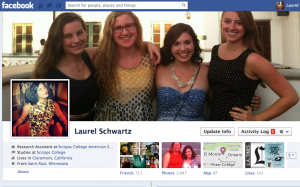I haven’t really settled on one field of work that I want to pursue, so I have been basically been snapping up any job I can since arriving at Scripps to gain experience. Making money along the way helps too!
I now work four part-time jobs. Pretty crazy, I know.
Out of the four, three are on-campus jobs as a: design editor for the Scripps Voice, Phonathon caller for the Scripps Fund, and usher for the Scripps Performing Arts Center. My fourth job is with a company based in Gardena called Trinity International Industries. During the summer, I work at their home office. At school, I work remotely on my computer doing data entry.
Landing jobs are not easy. I probably sent dozens of applications in the course of my on-campus job search and I was very lucky some level of networking, since Trinityii hired me with little/no experience. Trinityii’s CEO hired me solely on word-of-mouth from her family friends… I was very lucky indeed.
Balancing the workload and responsibilities of four jobs can be really difficult and time consuming, especially since I consider myself a full-time student. I am very fortunate that my bosses are very considerate of my vigorous academic schedule, so my time is flexible. However, despite the flexibility, I still often find myself sleeping later and later, so I can finish all of the work I have to do.
I do not recommend others to follow in my footsteps, unless they have ridiculous organizational skills or if the work is absolutely necessary. I love having money at my disposal, but I love challenging myself to see what I am capable of. So far, my social and academic life has not dramatically changed with my increased level of work. I hope that remains as I continue to push through the rest of the semester!
Have any questions? Feel free to connect with me on LinkedIn! I won’t bite! It would be a good start building your network. You never know when you might need a hand!
Live long and prosper!





